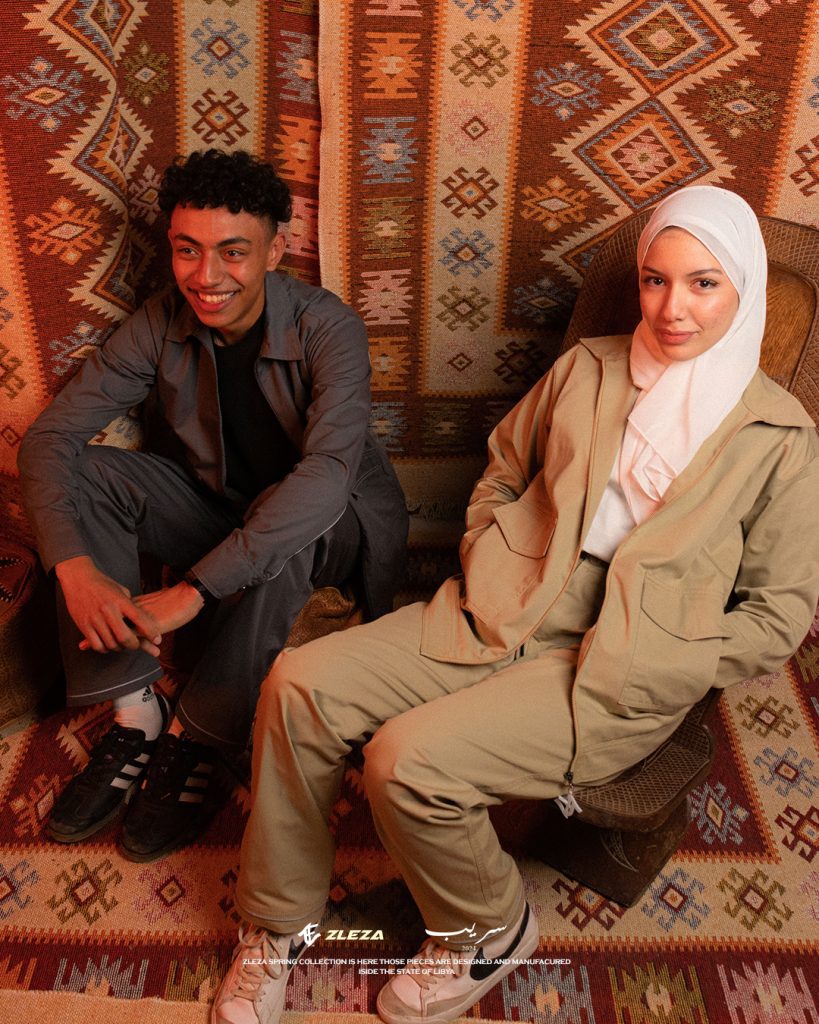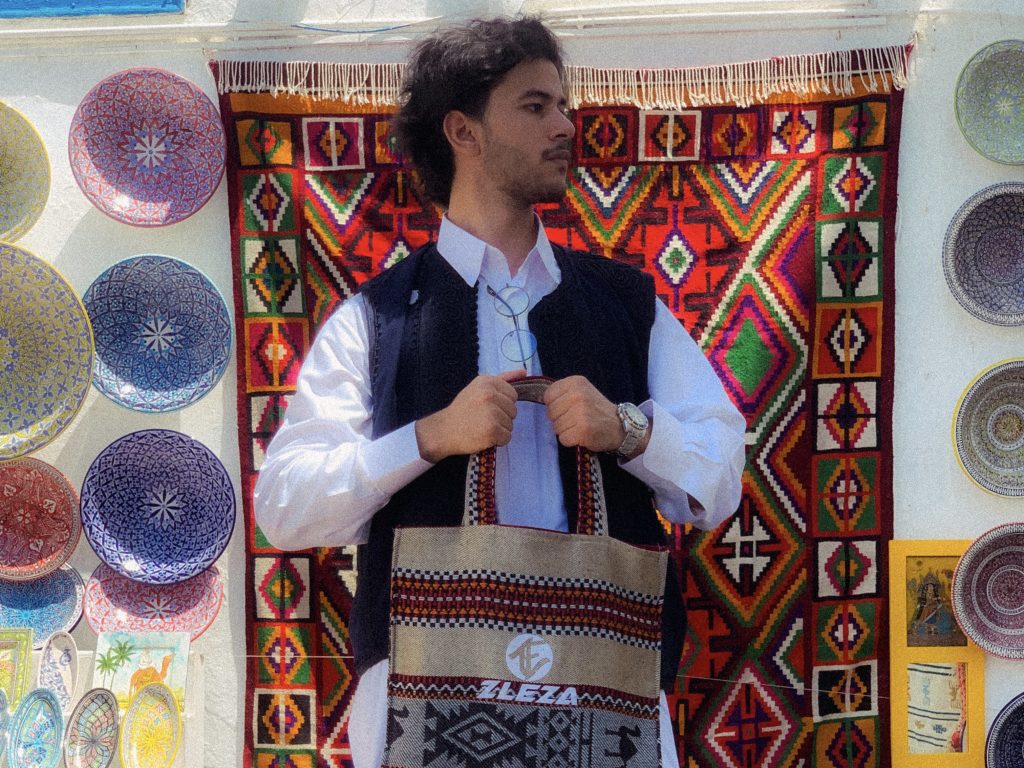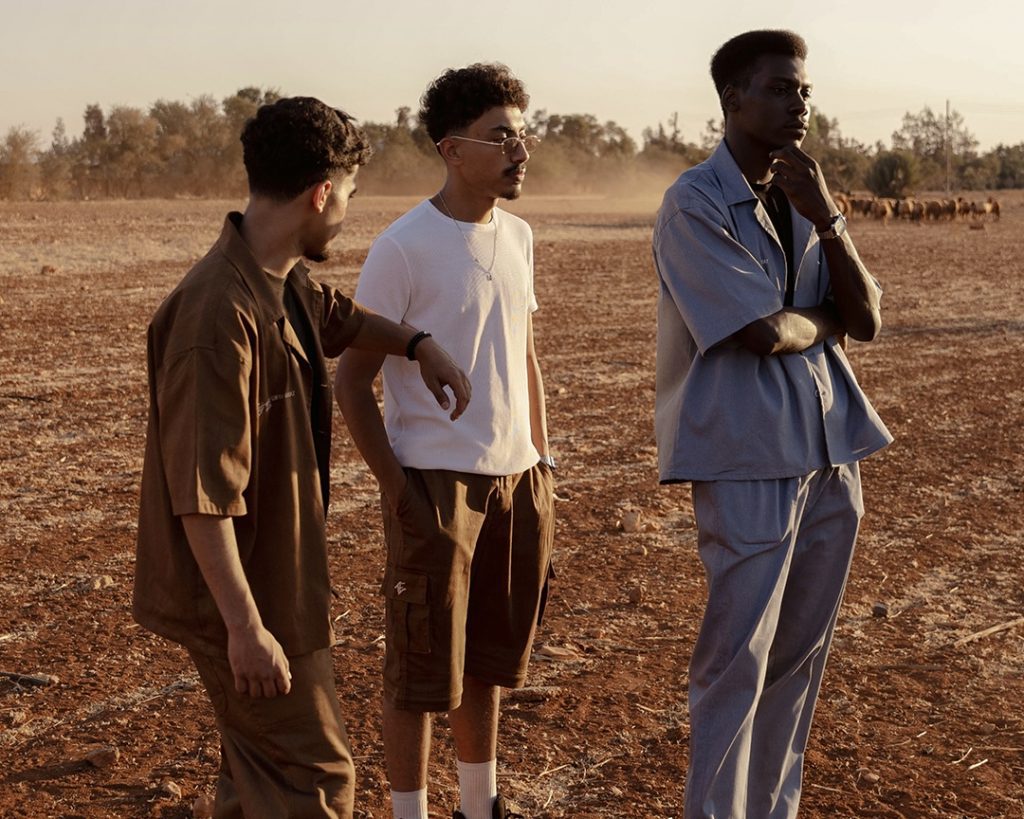Zleza: Rebirth of a Libyan fashion brand
In the heart of markets crowded with imported goods, two young men, Islam Attia and Fakhr al-Din Qarman, from the Libyan city of Benghazi, decided on a unique adventure. They were bored with the style of the clothing market, where clothes lacked a distinct cultural identity. From here emerged the idea of “Zleza”, the Libyan brand that they launched to embody the beauty of Libyan culture with a touch that combines authenticity and modernity.

The journey of a thousand miles begins with a step
Launching a business requires a lot of courage and planning ahead, especially when the project is in the fashion industry. Islam Attia, founder of the Zleza brand, says: “At first, the idea was crystallizing without taking any bold steps, and we didn’t have the name Zleza yet. But it was just a conception without a name. We decided to take the actual step and jumped on the journey of a thousand miles that took a big turn in our lives in late 2021. We started looking for the necessary tools and studies required to launch this brand.”
“After a short period of research, we faced our first challenge, which is that building a fashion and apparel brand requires achieving ten or more key elements. This challenge included many aspects such as manufacturing, availability of raw materials, establishing headquarters, in addition to providing manpower.”
To face challenges, the two partners Islam and Fakhry discussed the brand name they wanted to launch. They exchanged many names, but none were well received. Suddenly, one of them suggested the name “Zleza,” a nickname they had been using for each other since the beginning of their friendship four years ago. “Zleza” refers to the ancient Libyan floor tiles characterized by their durability and aesthetics, making them long-lasting regardless of the number of years.
When they uttered the name, they laughed excitedly and asked themselves, “Why didn’t we think about this name in the first place?” This moment was a big turning point, as the name “Zleza” became a symbol of Libyan identity and gave them the incentive to continue their project.

Bold beginnings and first challenges
The beginning was not covered with flowers; it was full of challenges and limited resources. Islam describes these difficulties, saying “We started with a simple budget of 4,500 Libyan dinars (800 euros) and rudimentary tools like an old laptop and a 40-year-old sewing machine that I borrowed from my grandmother.” However, these obstacles could not break down their ambitions.
Later, the two young men began looking for a place to work, they searched small factories and sewing workshops to manufacture the first batch of products. “Our company started with a small team of two people, and we rented a small room inside a pharmaceutical company. This may sound crazy, but it was the reality from which Zleza started. This was the brave and essential start in our journey towards achieving our goal.”
Fakhreddine describes their situation and resources: “There is not enough expertise in this field, no educational schools or specialized training, and not even sufficient awareness of the local market and production. The market is hungry for local industries. Our role at Zleza is to be first spark to spread the ‘Made in Libya’ culture and brand idea.”
The two young men seek to present products that reflect Libyan heritage with a modern touch, with the aim of inspiring others and encouraging them to invest in local industries. They see this effort as a way to contribute to building a sustainable economy and strengthening the cultural identity of their country, hoping that their project will be a catalyst for a local economic and cultural renaissance.

European support and upskilling
In the absence of a specialized fashion infrastructure in Libya, the team faced significant challenges in developing their skills and producing clothing. But with the help of the EU-funded Asaria business incubator, they were able to overcome these obstacles. Fakhreddine says: “We received entrepreneurial training from the European Union, which was a turning point for us. We learned a lot about business management, marketing and product development.”
Islam adds “the trainings at the business incubator were a rich experience; we took advantage of networking and marketing opportunities and learned how to properly manage our project.” He added that this support played a major role in enabling them to expand their business and manage the brand professionally, saying: “This support helped us overcome many of the obstacles we faced in the local market.”
ASARIA is one of Libya’s leading initiatives that provides support and qualification to ambitious youth in various regions of the country. Thanks to the support of the European Union, the incubator has succeeded in turning the ideas and projects of many young people into reality through integrated training programs focused on entrepreneurship, marketing, and product development.
The incubator contributes to empowering Libyan youth to overcome the challenges they face and equipping them with the necessary skills to open their own businesses. The incubator served as a launching pad for many successful initiatives that contributed to revitalizing the local economy and creating new job opportunities, enhancing the role of youth in building a better future for Libya. In this context, the team plans to launch a new collection called “Sareeb” at the end of 2024, inspired by Libya’s rich heritage. “We want Libya to be a fashion hub, and we see the launch of Sareeb as a major step towards achieving this ambition,” says Fakhr El-Din.

Encouraging young people to start their own projects
In a motivational message to Libyan youth, the two young men say: “The beginning of the journey of a thousand miles is not just a step, but a leap, and you must believe in your idea and venture to achieve it. Libya is a fertile ground for entrepreneurial projects, and creativity has no limits. Let the experience be your guide, and don’t hesitate to move forward.”
“We believe that Libya is full of opportunities for those who have the audacity to take risks and innovate,” Fakhreddine said.
As Zleza continues to succeed, the team’s vision for the future remains ambitious and clear. Islam concludes by saying “We aspire to be the fashion pioneers in the region and contribute to the rebuilding of the Libyan economy through the fashion sector. We plan to launch new and innovative collections, with the aim of increasing our presence in international markets.”
With this determination, Zleza seeks to lead the local fashion industry and spread the “Made in Libya” culture globally.




























 Syria
Syria 


